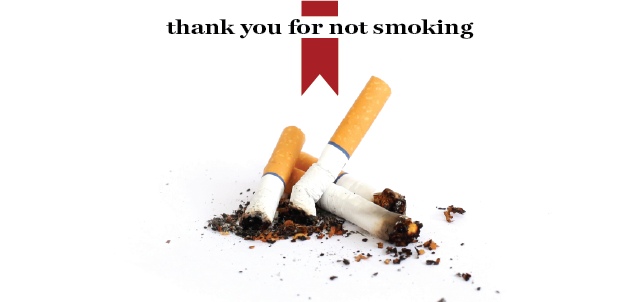Clearing the smoke: SA approves campus-wide smoking ban
February 1, 2017
After its third-consecutive year in discussion, Students’ Association passed a resolution in support of a smoke-free campus.
SA senators, students and faculty debated for two hours at the Jan. 30 SA meeting, resulting in the resolution passing 17-12.
As of now, SDSU is the only South Dakota Board of Regents institution without any smoke-free or tobacco-free policy.
The debate raised concerns on issues including infringement upon personal rights and cultural practices, the health of tobacco users and non-tobacco users, feasibility of enforcing a ban and treatment of campus as a professional environment.
Sen. Semehar Ghebrekidan cast her vote against the ban, citing her international constituents.
“I do not smoke personally and don’t mind a smoking ban, but since a large portion of the graduate school has international students who may smoke in it, I decided against the smoking ban to best represent them,” Ghebrekidan said.
Throughout the debate, Sens. Petru Enache and Irakoze Nafatari both argued for international students as well. Student Affairs Doug Wermedal, and Wellness Coordinator Mariah Weber and members of HEROH, a health-oriented student organization, argued in favor of the ban for the benefit of tobacco users health. They also cited the Wellness Center’s tobacco cessation services.
“This is not to catch people [smoking], it’s all about education,” Wermedal said during the debate.
Nafatari, however, was still not convinced.
“We cannot force health education on people. These students understand the risks. We should be able to support everyone without taking freedoms away,” Nafatari said.
Enache resonated with Nafatari’s points and advocated for a compromise.
“At my previous university we designated areas to smoke where it is less populated … it’s a middle ground. Saying no [to smoking] will not make people healthier; it will not change their minds,” Enache said.
Black Student Alliance (BSA) representative Amanda Fortune John said, “Compromise is key in this situation.”
She added that compromise considers all parties and honors “… the needs of the minority body.”
Ultimately, however, Senate did not decide to compromise.
SDSU currently has a “25-foot” rule, stating a person smoking must be at least 25 feet away from a building. However, this rule is regularly unenforced.
In response to questions of enforcement, Wermedal explained how the policy plans to approach this.
“Enforcement will aim first at education and providing the individual with materials and other resources to support smoking cessation,” Wermedal said. “For students, this resource would be supplied by Residence Hall, Wellness Center and Student Affairs personnel. For faculty and staff, this resource would be provided by their immediate supervisor and the Human Resources office.”
Smoking policies vary across SDBOR institutions. South Dakota School of Mines and Technology prohibits all forms of smoking, including vaping, across their campus, while Black Hills State permits tobacco use in parking lots. Dakota State takes a stricter approach, prohibiting all use across campus, with a possibility of directing perpetrators to leave campus. USD prohibits use campus wide, but lacks a clear enforcement policy, stating it is “the shared responsibility of everyone at The University of South Dakota.”
According to SA President Ally Helms, the smoke-free policy resolution failed in the past mostly due to questioning how it could be enforced, especially with the lack of enforcement of the 25-foot rule.
Wermedal and Sen. Nick Lorang shared their perspectives on the smoking ban as preparation for students entering professional, often smoke-free, workplaces.
“For two years I have opposed this policy. Last year I opposed it because of points people brought forward in restricting personal rights,” Lorang said. “However, aside from health concerns, inconvenience and potential restriction of rights, I am looking at this as an issue of professional preparation, and what is appropriate in a professional and educational environment.”
Katherine Meyer, an animal science major who did not attend the meeting, also addressed professionalism.
“It’s definitely something that’s not viewed highly in a professional workforce,” Meyer said.
Conversely, John pointed out that campus is more than a workplace for many students.
“This isn’t just a professional environment for some people; this is their home,” John said.
A smoking ban has been a reoccurring issue in Senate for about half a decade. It finally passed this year because senators felt they have a policy to stand behind.
“This year is different. We always talk about how we have no policies to help push this forward, but now we do. [The tobacco coalition] is ready to move this forward and stand behind it. Now, it’s our turn to help … make this campus healthier,” McLean said at the beginning of the meeting.
Dana Kurtz, a student representative for HEROH at the meeting highlighted their mission in relation to the smoking ban.
“A lot of discussion tonight dealt with secondhand smoke, and we are really pushing for overall health for everybody, whether they are a tobacco user or not,” Kurtz said.
Sam Vanorman, a human biology major, who was not present at the meeting, said he is “all for it,” saying a smoking ban considers the overall health of all students.
HEROH representative, Mackenzie Schutz, said, “I think it’s great this meeting brought to light the tobacco cessation services the Wellness Center offers.”
Helms, who has spearheaded this resolution from the beginning, was pleased with the debate and looks forward to next week.
“I’m excited to see what the tobacco coalition can do. We have crafted a group of individuals to work toward making sure this is successful.
As of now, only a campus smoking ban has passed and SA will discuss a tobacco ban, as well as an E-Cigarette ban, in next week’s meeting.
Helms said those still interested in this topic should come at 7 p.m. next Monday to the Lewis and Clark room to voice their concerns on these resolutions.
























